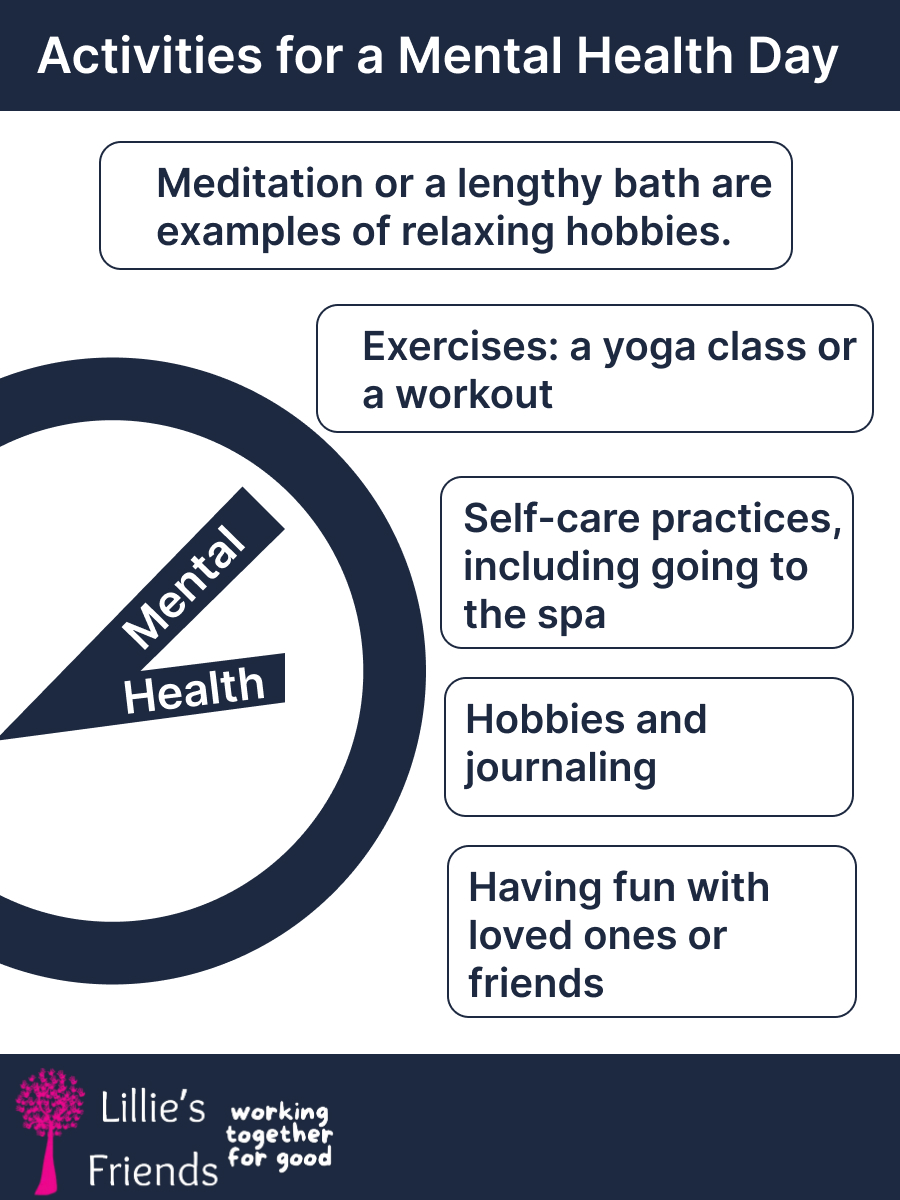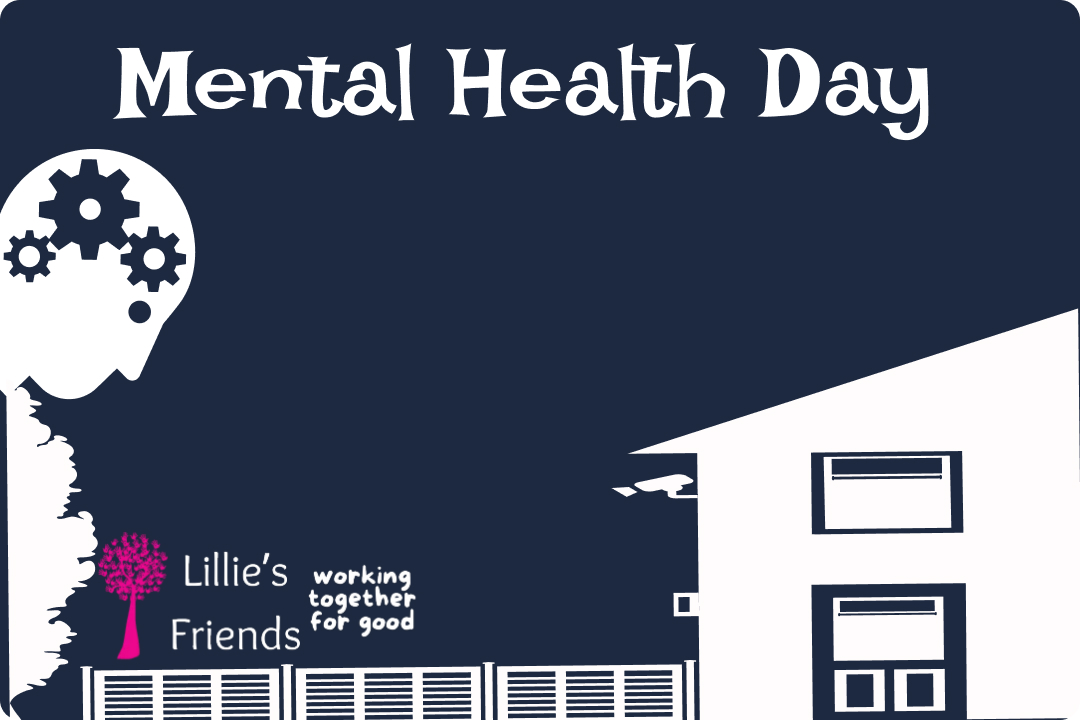Knowing the importance of mental health has become essential at a time when stress and burnout are prevalent. Mental health days highlight the value of maintaining a healthy psychological and emotional condition, encourage self-care, and act as a beacon of self-awareness.
As a result, the idea of occasionally taking a day off for mental health has gained a lot of attention, and rightfully so. Let’s explore its definition, advantages, and telltale symptoms that it’s necessary.
A Mental Health Day: What Is It?
In 1992, World Mental Health Day↗ was established by the World Federation for Mental Health. It is now observed annually on October 10th and is now supported by the World Health Organisation. The day facilitates communication about mental health and helps people better grasp its significance. It gives everyone a break from mental and emotional stress and encourages them to take more care of their psychological well-being.
Advantages of Taking a Day Off for Mental Health
We frequently overlook the significance of mental health in our unrelenting pursuit of both personal and professional goals. Nonetheless, there are several advantages, both material and immaterial, to taking a moment to prioritise our mental health. The benefits ↗ of taking mental health days are examined in more detail below:
- Enhanced mental health. An escape from everyday pressures helps to lessen feelings of depression and anxiety.
- Increased output. When returning to work, a relaxed mind↗ frequently leads to improved decision-making skills and higher efficiency.
- Improvement in physical health. A stronger immune system and improved sleep↗ are two physical health benefits of less stress.
- Gaining perspective. Getting away from everyday tasks allows one to see problems more clearly, both personally and professionally, which helps one make better judgements.
Indications That It’s Time for a Mental Health Day
In the same way that our bodies display symptoms of physical exhaustion or disease, so do our brains when they are under stress or overwhelm. Let’s look at several important signs that indicate it could be time for you to take a day off for your mental health:
- The mood shifts. It could be appropriate for a break if you see regular mood swings, such as heightened melancholy or a sense of helplessness.
- It’s difficult to focus. Your brain needs a day off if you are constantly distracted, find it difficult to focus, or find things more difficult than normal.
- Illness won’t go away: Physical symptoms might appear when mental stress accumulates. Frequent fever, headaches, stomach problems, or other inexplicable illnesses might be your body’s way of telling you that you need to take a mental vacation.
- You are easily enraged. Having a short fuse or becoming more irritable, especially about unimportant things, indicates that your emotional reserves may be depleting.
- Absence of passion. It may be time to take a step back and reflect if you no longer find the same things that used to thrill or encourage you, or if you feel generally detached from your surroundings or uninterested.

Taking a Mental Health Day: A Guide
There is more to taking a mental health day than simply skipping work. It involves consciously choosing to put your mental health first. First, choose a day that will interfere with your job schedule as little as possible. Without feeling guilty, tell your boss why you need a day off for mental health reasons. Finally, schedule your day so that you may maximise your mental health respite. You can discover a number of useful suggestions below.
Ways to Celebrate Mental Health Day
Meeting your psychological needs is the aim of a mental health day. Research↗ examining several aspects of detachment discovered that physical detachment is associated with physical health, emotional detachment with emotional well-being, and cognitive detachment after work with cognitive health. You may customise your day in the following ways:
- If you need to unwind, think of relaxing pursuits that suit your tastes, including reading a book, having a long bath, meditation, or listening to relaxing music.
- Include workouts or other physical activity in your day if you require mobility. Moving your body, whether it be through yoga, a dancing class, a gym workout, or a brisk stroll, can improve your mood and speed up your recuperation↗.
- Take part in enjoyable activities if you need a pick-me-up. This may be going to a comedy show, painting, dancing, or just hanging out with loved ones.
- If there are things in your personal life that need to change, take this time to think about them. This might entail writing down your ideas, getting guidance, or creating a future strategy.
- If you require additional personal time, it might be time to think about taking a sabbatical or vacation. Look into places or activities that might offer a lengthier break from your daily schedule.
- Regardless of your demands, make self-care a priority if you wish to practise self-care. This might entail going to the spa, taking a sleep in the afternoon, or even getting professional counselling.
How to Proceed When Taking a Single Mental Health Day Is Insufficient
If taking a day off doesn’t make you feel less stressed or overwhelmed, it can be a sign of more serious mental health problems. In these situations:
- For longer-term treatment or counselling and a greater knowledge of the underlying reason, think about speaking with a doctor.
- Take care of yourself on a regular basis rather than only on special occasions.
- Think about significant life transitions that might lead to a more enduring feeling of well-being.
World Mental Health Day, in summary
The goal of World Mental Health Day is to increase public awareness of mental health concerns and rally support for mental health services worldwide. It acts as a reminder of our shared duty to promote a society in which everyone has access to the treatment they require and mental wellbeing is widely valued.
How many mental health days are OK?
Listen to your body and mind to determine how many mental health days you need. This depends on your unique situation, stresses, and coping strategies. Determining the right frequency may be aided by self-checking frequently, keeping lines of communication open with employers, and paying attention to your health, including speaking with medical professionals.
How often is it OK to take a mental health day?
It's acceptable to take a mental health day whenever you truly believe that you need one. The frequency varies depending on personal situations and workplaces. But if the need arises too frequently, it can be a sign of more serious underlying problems that call for longer-term care or expert assistance↗. It's critical to pay attention to your body and mind and strike a balance between obligations and self-care.
Is a mental health day an excused absence from work?
in certain organisations that understand the need of mental health days to prevent job-related stress, burnout, and other major negative consequences, a mental health day may be regarded as an excused leave from work. However, different workplaces have different rules and levels of acceptability when it comes to mental health days. To find out how your company feels about the issue, you must speak with your HR department or consult your employee handbook.
Is it okay to take a sick day for mental health?
Mental health is just as essential as physical symptoms when it comes to a sick day. Prioritise your emotional well-being and give yourself the time you require to recuperate if you are experiencing mental overload or stress to the extent that it interferes with your capacity to work normally.
How do I ask my boss for mental health leave?
Be direct and truthful when requesting mental health leave from your employer. You may say, for instance, "I feel like I need to take a break because I've been feeling overburdened lately and I think it will help me be more productive and healthy overall." Could we talk about me taking a day off for mental health? You don't have to provide every detail, but do remember to talk about how to handle any pressing issues and business requirements while you're away.











